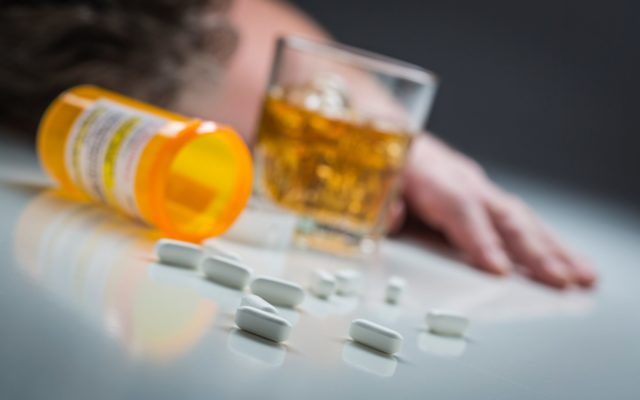According to Statista, more than 37 million Zoloft prescriptions were issued in the U.S. in 2019. That same year, more than 139 million people aged 12 and older had drunk alcohol within the past month, as reported by the Substance Abuse and Mental Health Services Administration. Out of those 139 million-plus individuals, nearly 15 million lived with alcohol use disorder, based on data collected by the National Institute on Alcohol Abuse an Alcoholism. Based on these numbers, it is easy to assume that there could potentially be millions of people mixing Zoloft and alcohol.
What Is Zoloft?
Zoloft is the brand name for sertraline, a prescription medication used to treat depression, PTDS, bipolar disorder, panic attacks, anxiety disorders, and PMDD. The drug helps regulate serotonin levels in the brain.
Serotonin is a neurotransmitter responsible for regulating mood, appetite, decision-making, social interaction, and sleep. By regulating the release of serotonin, Zoloft can be an effective antidepressant when taken as prescribed.
What Are the Side Effects of Zoloft?
Zoloft does have certain side effects people need to be aware of when taking this medication. For starters, some people can experience side effects, such as decreased appetite, insomnia, nausea, diarrhea, drowsiness, dizziness, headaches, and excessive sweating.
Not everyone that takes Zoloft experiences these side effects. Additionally, some people may only experience certain side effects and not others. For example, someone may notice they feel lightheaded and dizzy after taking the drug, which subsides as it wears off.
What Is Alcohol?
According to the World Health Organization, alcohol is defined as “a psychoactive substance with dependence-producing properties that has been widely used in many cultures for centuries.” Alcohol is classified as a depressant because it binds to GABA receptors in the brain to slow signals sent through the central nervous system to the brain.
How Does Alcohol Affect the Body?
Alcohol also causes an increase in dopamine, another neurotransmitter that is responsible for feelings of pleasure and reinforces rewarding behaviors. In addition, alcohol impairs brain functioning and slows cognitive functioning.
This is why people slur their speech, have problems balancing and walking, and can take longer to communicate with others. Continued alcohol consumption at higher levels can make a person drowsy and pass out.
Why Is Mixing Zoloft and Alcohol Dangerous?
Mixing Zoloft and alcohol can be a dangerous combination. Since alcohol is a depressant, it can counteract the antidepressant. In addition, alcohol can enhance many of the side effects one could experience when taking Zoloft, such as:
- Increasing the drowsiness effects, resulting in passing out
- Increasing the risks of blackouts, where someone remains awake but cannot recall what they did
- Causing short-term memory loss
- Making a person very dizzy, increasing the risks of falling and personal injury
- Increasing the risks of injuries to one’s self and others
- Making the symptoms of depression and anxiety worse
- Increasing the risks of causing post-traumatic stress disorder (PTSD) “triggers” and panic attacks
- Causing someone to have thoughts of self-harm and suicide
- Increasing risk-taking behaviors and lowering inhibitions
- Elevating the withdrawal symptoms of alcohol, such as nausea, vomiting, headaches, and diarrhea
Furthermore, Zoloft and alcohol also decrease heart rates. The combination of both can cause heart failure and death. Conversely, Zoloft can counteract the effects of alcohol and increase one’s tolerance. As a result, the person will end up drinking higher amounts of alcohol to achieve the desired effects, which could lead to blackouts and alcohol poisoning.
Additionally, mixing the two substances can increase carvings since Zoloft increases the release of serotonin, and alcohol increases the release of dopamine. Therefore, when someone drinks while their serotonin levels are being increased from Zoloft, this behavior and the pleasurable effects initially experienced by the alcohol are reinforced, encouraging continued behavior of mixing the substances.
Why Do People Mix Zoloft and Alcohol?
People mix alcohol and Zoloft for different reasons. For starters, they may think it is okay to drink in moderation while taking Zoloft, even though it is highly discouraged. Next, they may be attempting to self-medicate and self-regulate the effects they experience when they are pleasurable.
Next, a person’s judgment is impaired when under the influence of both substances. As such, they may feel more socially outward and more willing to engage in behaviors they usually would not. For example, they may become more sexually promiscuous or engage in risky sexual behaviors, like having sex with multiple people simultaneously.
Another reason for mixing the two substances is to enhance the drowsiness effects if the individual has insomnia. For instance, they discover they fall asleep easier when combining them. So they can become hooked on continuing this practice.
In some cases, a person may already have an alcohol use disorder or binge drink regularly but declined to report this when they were prescribed Zoloft. Instead, they take the drug as prescribed and continue drinking. This can be an indicator that they may have a drinking problem and their first step may need to be an alcohol detox program.
Zoloft and Alcohol Addiction Treatment in Orange County, CA
When you are struggling with AUD and taking Zoloft and want help, Pacific Sands Recovery Center in Orange County, CA, offers a caring and supportive environment. Our JCAHO-accredited treatment center offers integrated treatment with individualized plans. Contact us today.

